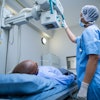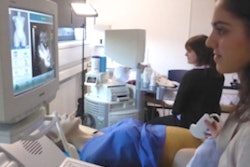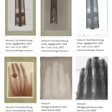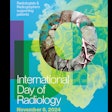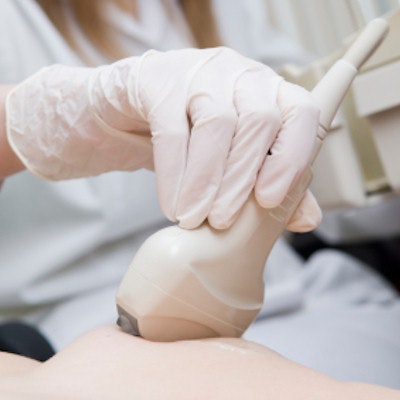
Continuous personnel changes are a major factor behind the serious shortage of ultrasound staff in the National Health Service (NHS), a situation that has resulted in increased diagnostic delays and canceling of operations, according to research presented this week at the UK Imaging & Oncology Congress (UKIO) in Liverpool, U.K.
After surveying 20 ultrasound department heads in the North of England, lead researcher Dr. Paul Miller of the University of Cumbria and colleagues found that, aside from ultrasound positions not being filled, there are structural problems that can't be overcome by simply hiring new personnel.
"We have actually asked ultrasound departments what is leading to the bottleneck, and the answer is clear: Lack of stability within the departments means that expertise is lost and training can't take place," Miller said in a statement from the UKIO. "Couple this with a general shortage of money, fewer people entering the discipline, and pressure to meet targets with declining workforce means that many NHS ultrasound departments are stretched very close to breaking point."
Sonographers who do well may move on as they find better positions, creating a dynamic where some departments do well but most have difficulties, according to the researchers.
"This means that these departments have to buy in temporary sonographers, which is expensive but which also chips away at the sense that you can build working relationships and personal friendships within the department," Miller noted. "There is little room for training, mentoring, or for developing the culture of trust which you need in such things as cancer imaging. The discipline has just become less attractive."
The researchers also observed that the general shortage of radiographers has contributed significantly to the challenges of recruiting sonographers. Sonographers have traditionally first trained as general radiographers, but with one in 11 radiographer posts remaining unfilled, fewer qualified radiographers are available to move into sonography.
"We also found that working with ultrasound was seen as less 'sexy' than more hi-tech techniques such as MRI, and there is a lack of career structure which inhibits younger people wanting to train as sonographers," Miller said. "Larger urban hospitals manage to avoid recruitment problems, but medium to small hospitals suffer."
He emphasized that understanding the human aspects of understaffing can help underpin more tailored interventions. It isn't enough to simply say that more sonographers are needed.
"Shortage causes anxiety in itself, but rapid staffing turnover causes more," Miller said.
Commenting on the research, Nigel Thomson of the Society and College of Radiographers said the organization is working on a major project to address the sonographer shortage with Health Education England and other stakeholders.
"[This] will include new educational pathways including entry at degree level and a full career framework from practitioner through to consultant," Thomson said in the UKIO statement. "We are also asking the Department of Health and Social Care for the title 'sonographer' to become legally protected and for sonographers to be statutorily regulated."
